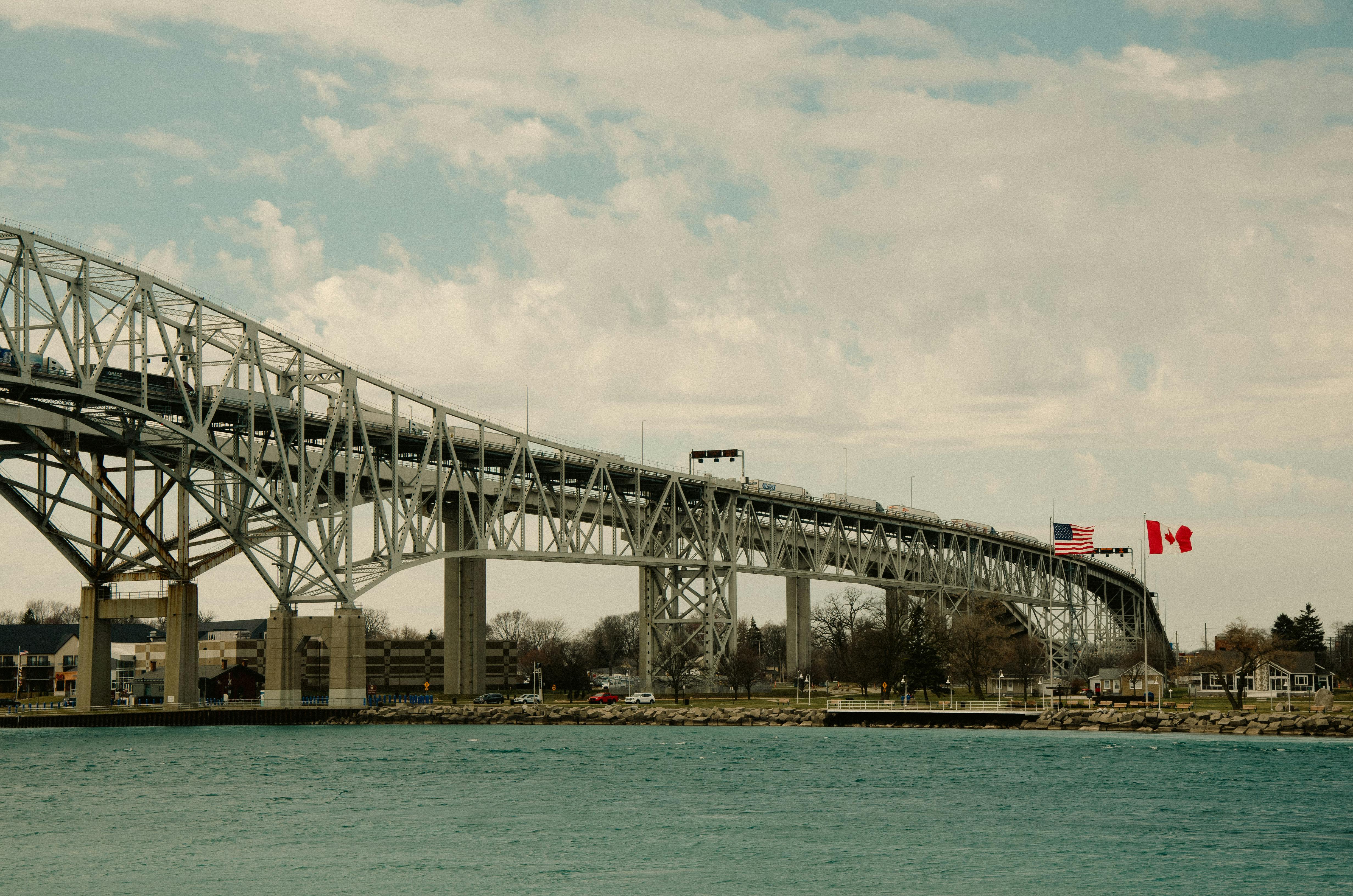How Will March 4th Tariffs Impact Greater Vancouver Residents?

The recently imposed 25% U.S. tariffs on Canadian goods are anticipated to have notable effects on the Greater Vancouver area, impacting various sectors of the local economy.
Economic Impact
- British Columbia's economy, including Greater Vancouver, is expected to face challenges due to these tariffs. The Conference Board of Canada forecasts a potential 1.2% reduction in the province's gross domestic product (GDP) in the upcoming quarter if broad U.S. tariffs on Canadian imports persist.
- This contraction could lead to decreased business investments and a slowdown in economic growth within the region.
Manufacturing and Trade
- The tariffs have already led to a contraction in Canada's manufacturing sector, with the S&P Global Canada Manufacturing Purchasing Managers' Index (PMI) dropping to 47.8 in February, indicating reduced manufacturing activity.
- Given Greater Vancouver's role as a significant trade hub, local manufacturers and exporters may experience reduced demand, leading to potential job losses and decreased industrial output.

Real Estate Market
The recent imposition of a 25% U.S. tariff on Canadian goods is anticipated to have nuanced effects on the Greater Vancouver real estate market. For potential home buyers and sellers in 2025, understanding these dynamics is crucial.
Increased Construction Costs:
- Higher Material Expenses:
- Imported Materials: The tariffs could lead to increased prices for imported construction materials such as steel and aluminum.
- Developer Costs: Developers may face higher costs, potentially leading to increased prices for new housing developments.
- Impact on Project Viability:
- Project Delays or Cancellations: Rising costs might cause some developers to delay or cancel projects, reducing the supply of new housing.
Market Resilience:
- Short-Term Adjustments:
- Temporary Sales Drag: Despite potential challenges, forecasts suggest that the impact on Metro Vancouver's residential market may be short-lived.
- Cross-Border Investment Slowdown: The Greater Vancouver Realtors' annual report indicates that while there might be a temporary drag on sales due to slowed cross-border investments, the market is expected to adjust over time.
- Long-Term Outlook:
- Demand and Supply Dynamics: The region's strong demand for housing and limited supply may help stabilize the market over time.
Implications for Buyers and Sellers in 2025:
- For Buyers:
- Pricing Trends: Be prepared for potential short-term fluctuations in property prices due to increased construction costs and market adjustments.
- Inventory Considerations: A possible reduction in new housing supply could limit available options, making it essential to act promptly when desirable properties become available.
- For Sellers:
- Market Timing: The anticipated short-lived impact of tariffs suggests that listing properties sooner may be advantageous to capitalize on current demand.
- Property Valuation: Understanding the local market dynamics and pricing properties competitively will be crucial to attract serious buyers.
In summary, while U.S. tariffs may introduce certain challenges to the Greater Vancouver real estate market, the inherent resilience of the region, driven by strong demand and limited supply, is expected to mitigate prolonged disruptions. Both buyers and sellers should stay informed and adapt strategies accordingly to navigate the evolving landscape in 2025.

Consumer Prices and Inflation
The tariffs are likely to lead to higher prices for consumer goods, including groceries, gasoline, and automobiles. This increase in living costs could strain household budgets in Greater Vancouver, affecting consumer spending and overall economic sentiment.
Short-Term vs. Long-Term Effects
The imposition of tariffs is likely to have varying impacts over different time horizons:
- Short-Term Effects:
- Increased Consumer Prices:
- Tariffs can lead to higher prices for imported goods, including consumer products, thereby increasing living costs.
- Business Uncertainty:
- Companies may face challenges in planning and investment due to uncertainty surrounding trade policies.
- Financial Market Volatility:
- The announcement of tariffs has led to significant declines in stock markets, reflecting investor concerns about potential economic slowdowns.
- Long-Term Effects:
- Economic Diversification:
- Canada's largest pension fund emphasizes the need for economic diversification to mitigate the impact of U.S. tariffs.
- Trade Strategy Reassessment:
- Persistent tariffs may prompt Canada to seek new trade partnerships and reduce reliance on the U.S. market.
- Structural Economic Changes:
- Long-term tariffs could lead to permanent shifts in the economy, affecting sectors like manufacturing and influencing investment decisions.

In summary, the 25% U.S. tariffs on Canadian goods are poised to have multifaceted impacts on Greater Vancouver's economy. While the real estate market may experience short-term challenges, its inherent resilience could mitigate prolonged disruptions. Both immediate and extended effects underscore the importance of strategic economic planning and diversification to navigate the evolving trade landscape.
***
Sources used & available for further reading:
- Associated Press. (2025, March 3). Trump says 25% tariffs on Mexican and Canadian imports will start Tuesday, with 'no room' for delay.
- Finimize. (2025, February 3). Canadian manufacturing faces new challenges with tariff uncertainty.
- Global News. (2025, February 2). Canada's retaliatory tariffs: Here's the list of targeted items.
- Morningstar. (2024, December 1). Trump's 25% tariff threat on Canadian imports triggers fears of economic damage.
- Packaging Dive. (2025, February 1). Canada's retaliatory tariffs to impact paper, plastic packaging.
- RSM. (2025, February 1). Even with pause, Trump's tariffs and Canada's response establish new trade dynamics.
- S&P Global. (2025, February 3). Canadian factory PMI dips in January as trade war risk dents confidence.
- The Times. (2025, March 3). Tariffs on Canada and Mexico begin within hours, Trump confirms.
- Lawder, D. (2025, March 3). Trump locks in Canada, Mexico tariffs to launch on Tuesday; stocks tumble.
- The Times. (2025, March 3). Where will Trump tariffs have most impact?.
- Reuters Investigates. (2025, March 3). Trump camp says China is 'attacking' U.S. with fentanyl. A fight looms.
- Canadian Mortgage Trends. (2025, January 17). Impact of Trump tariffs on Metro Vancouver real estate likely short-lived: Report.
- Business in Vancouver. (2025, January 10). Can Vancouver real estate market withstand tariff threat?.
***
Have questions about your local market and house value in these turbulent and uncertain times?
Reach out today, we are always happy to talk!

R3 Hayes Real Estate Group – Your Neighbourhood Experts
Call/Text:
Rod: 604-240-1927
Ryan 604-561-2127
